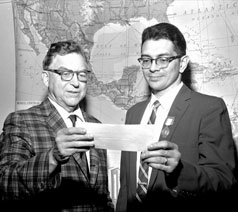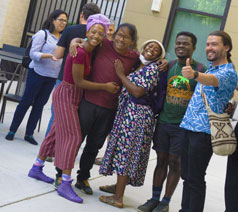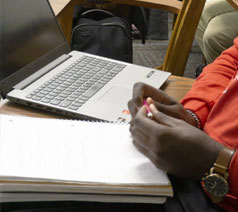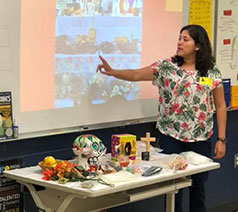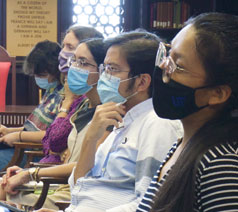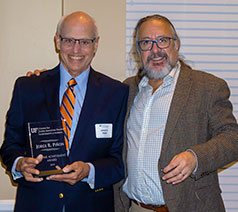“Black Man Time Now!” Race, Class and Culture in 1970s Jamaica
Event Start Date: October 09, 2018 4:00 PM
Event End Date: October 09, 2018 5:30 PM
.
“Black Man Time Now!” Race, Class and Culture in 1970s Jamaica
Kim Robinson-Walcott, University of the West Indies, Mona Jamaica
October 9 | 4:00 PM
Scott Nygren Studio, Library West
Kim Robinson-Walcott, Ph.D., is editor/head of Caribbean Quarterly, University of the West Indies, Mona. She is also the editor of Jamaica Journal, published by the Institute of Jamaica. She worked as a fiction and general trade editor for many years and worked closely with the Jamaican author Anthony C. Winkler on most of his novels. Her publications include the scholarly work Out of Order! Anthony Winkler and White West Indian Writing (University of the West Indies Press, 2006), Jamaican Art (Kingston Publishers, 1989, 2011) which she co-authored, The How to Be Jamaican Handbook (Jamrite Publications, 1988) which she co-authored and illustrated, and the children's book Dale's Mango Tree (Kingston Publishers, 1992), which she also illustrated. Her scholarly articles, book chapters, short stories, and poems have been published in a number of journals and anthologies. A second illustrated children’s book and a short story collection are forthcoming.
Abstract
“Black Man Time Now!” Race, Class and Culture in 1970s Jamaica
Kim Robinson-Walcott
Slavery ended in Jamaica in 1838, but true emancipation, from mental slavery, is still a work in progress. In the 179 years since 1838 there has been a slow and (un)steady evolution of black pride and self-esteem, but there have been a number of pivotal moments in Jamaica’s history where there has been a jolt in awareness – for example, 1865; 1938; the mid-1960s. The 1970s in Jamaica offered one such moment. Riding on the wave of the Black Is Beautiful, Black Power, Back-to-Africa movements of the 1960s, the PNP swept into power in 1972 with an agenda of social and economic empowerment for the poor majority – an agenda which, given the conflation of race and class in Jamaica, equates to black empowerment. A corollary to that agenda was a valorization of the African-originated folk culture lived by the black majority as opposed to the European-derived culture promoted by the colonial rulers.
That agenda, however, was not perfect in its execution. Considering a selection of literary works written by Jamaicans in or about the 1970s such as Anthony C. Winkler’s Going Home to Teach, Brian Meeks’s Paint the Town Red and Margaret Cezair-Thompson’s The True History of Paradise, and drawing on as well as Colin A. Palmer’s insightful analysis of the divided Afrocentric/Eurocentric Jamaican identity as expressed in his Inward Yearnings (as well as Rex Nettleford’s Caribbean Cultural Identity), in this paper I examine some of the complications and shortcomings of the PNP’s execution of its vision, and more critically the shortcomings and contradictions of the Jamaican population itself, from the perspectives of these writers. Finally, I suggest that with the ouster of the PNP from power in 1980, Jamaican race/class relations quickly reverted to the status quo position of white economic power/black subservience, white exclusivity, and externally as well as internally imposed black denigration. 1980, indeed, would prove to be another pivotal moment, signifying not only the end of the socialist experiment in Jamaica and the abortion of “black man time now”, but also a loss of idealism and a growth of cynicism and a self-serving pragmatism, disturbing features which have continued to mushroom and to scar the Jamaican psycho-social landscape up to the present day.
The event is open to the public and Co-sponsored by the Department of English, George A. Smathers libraries, and Center for Latin American Studies.

